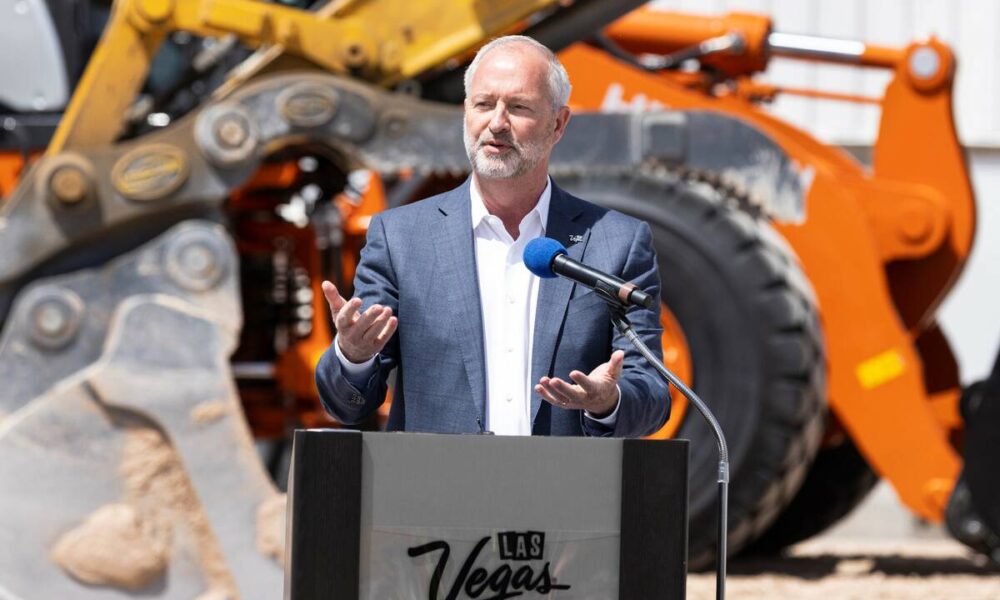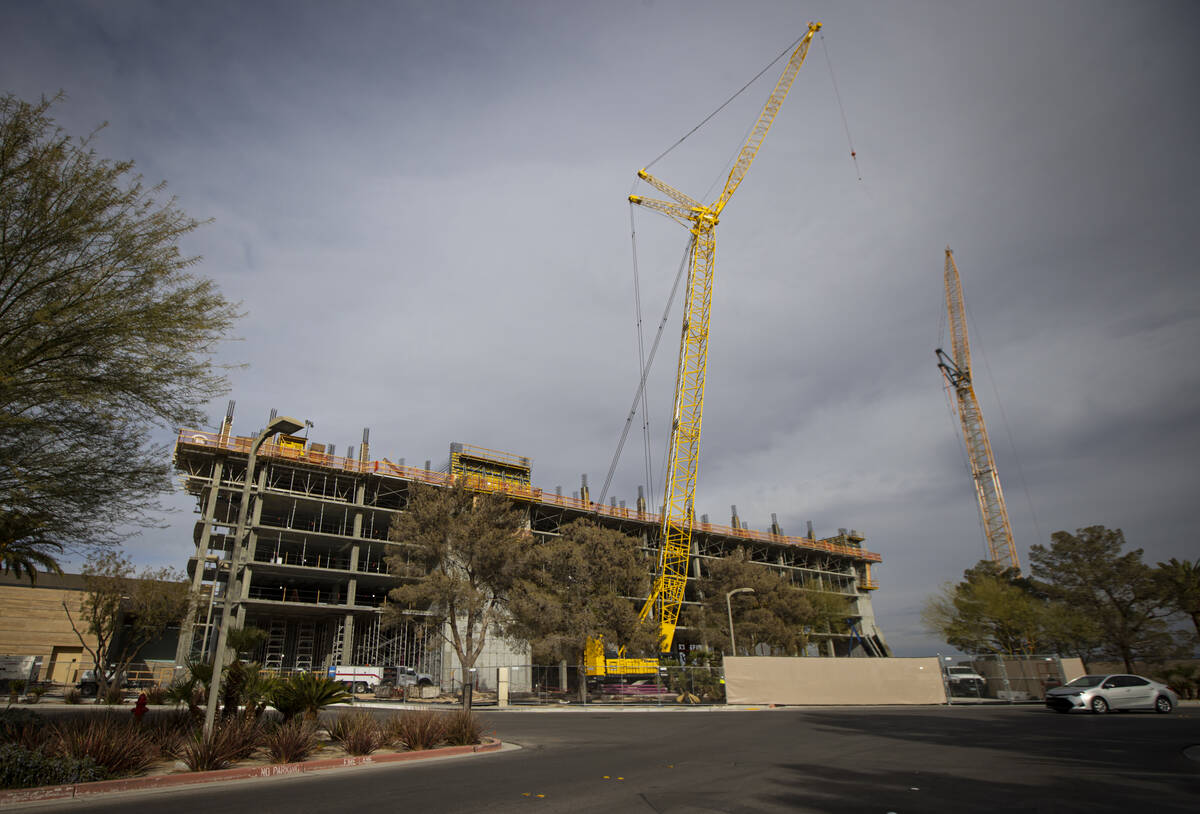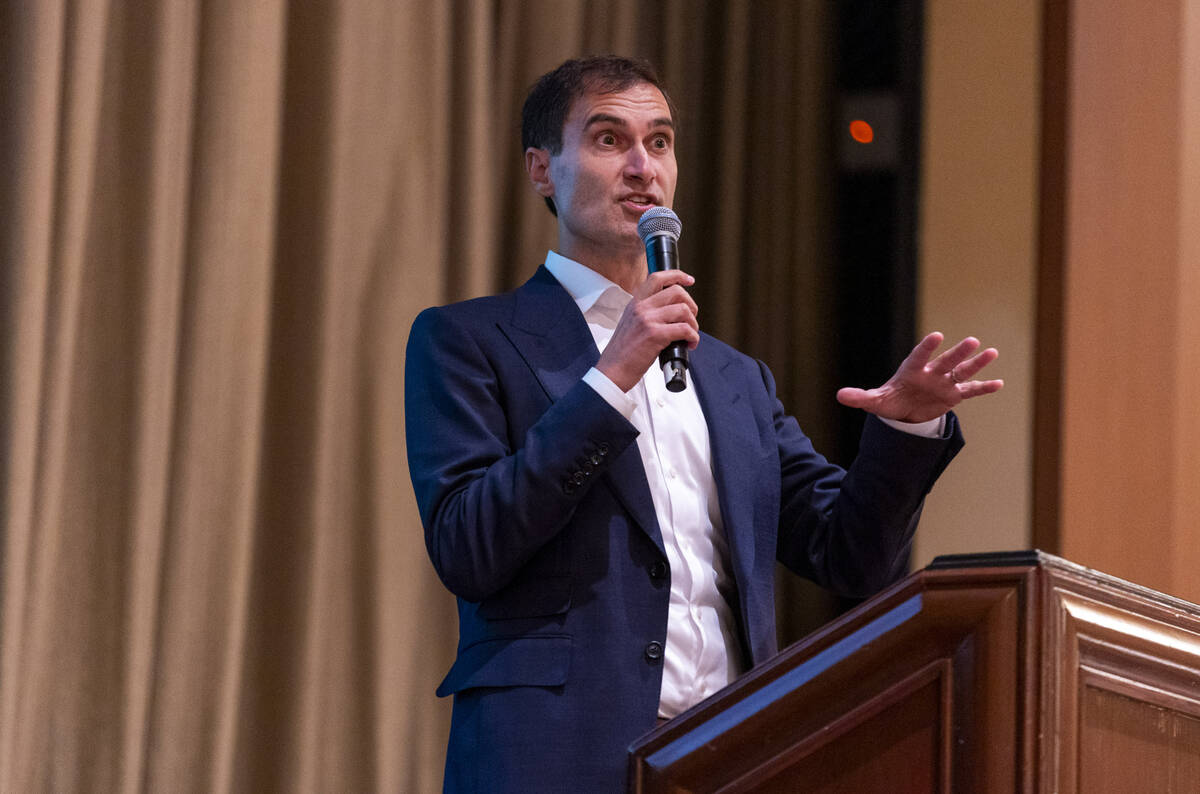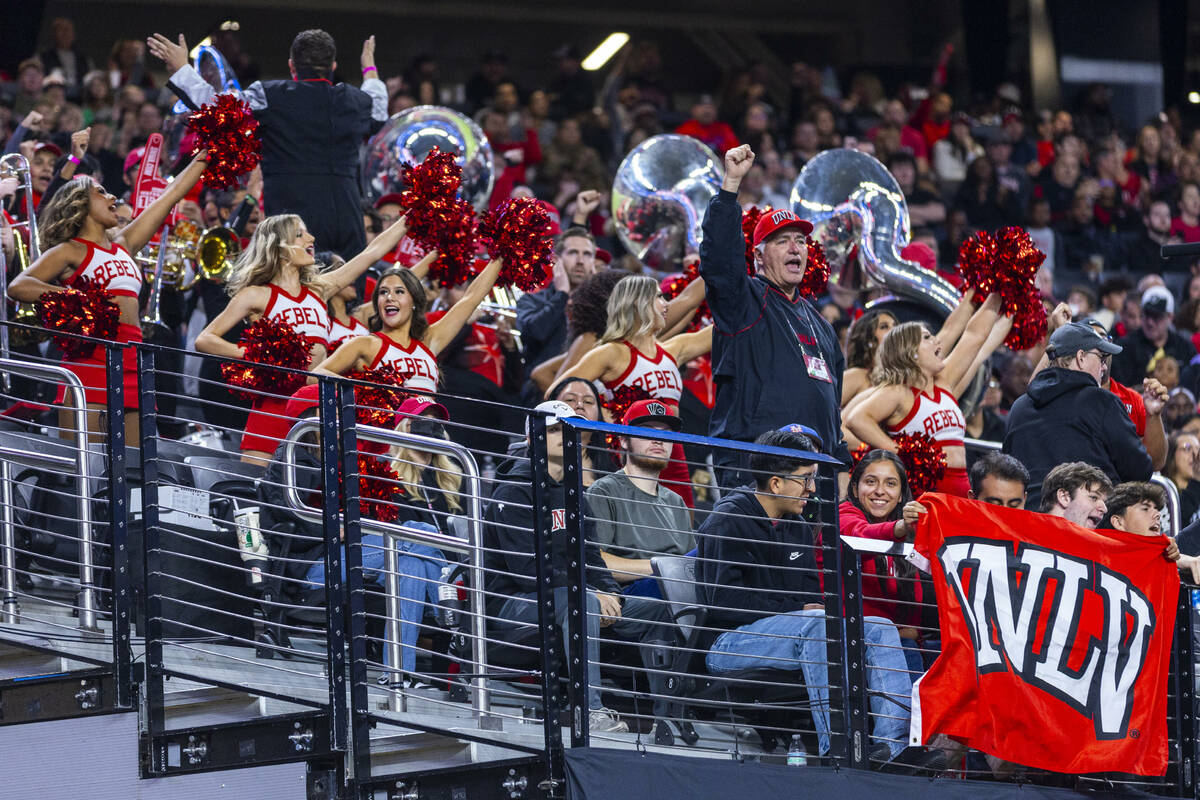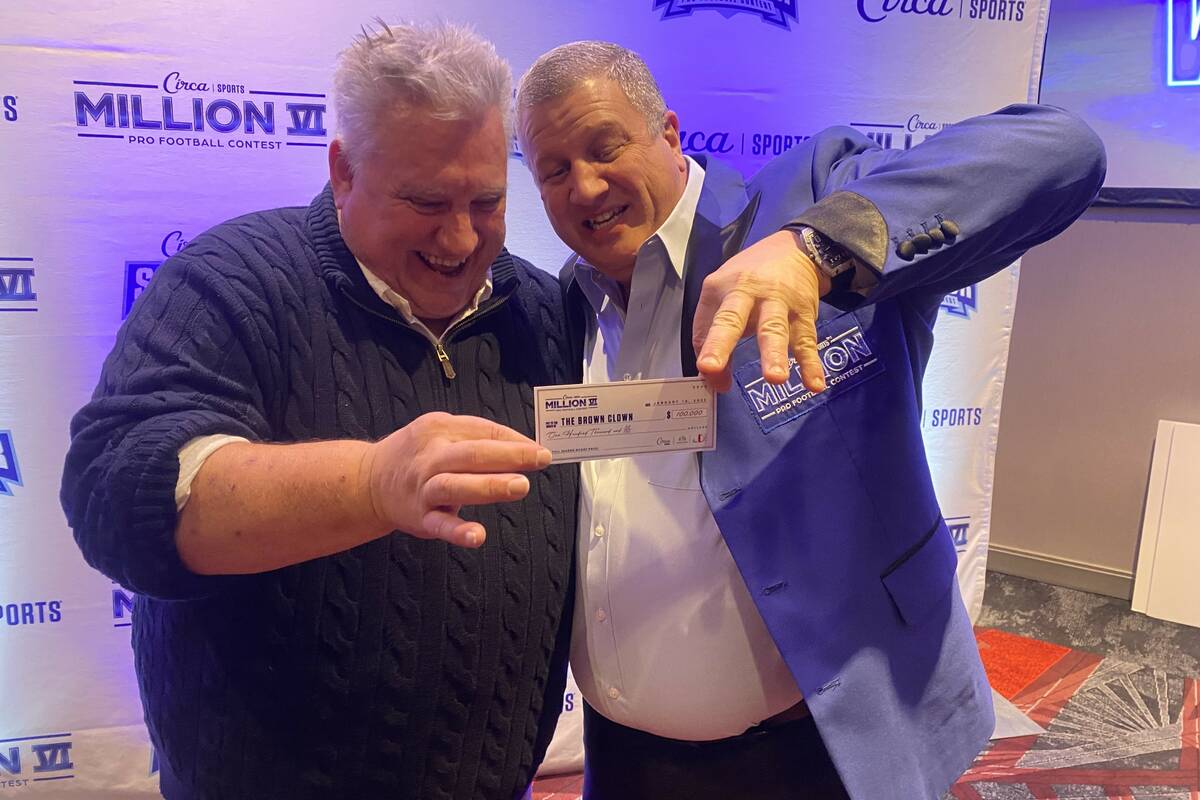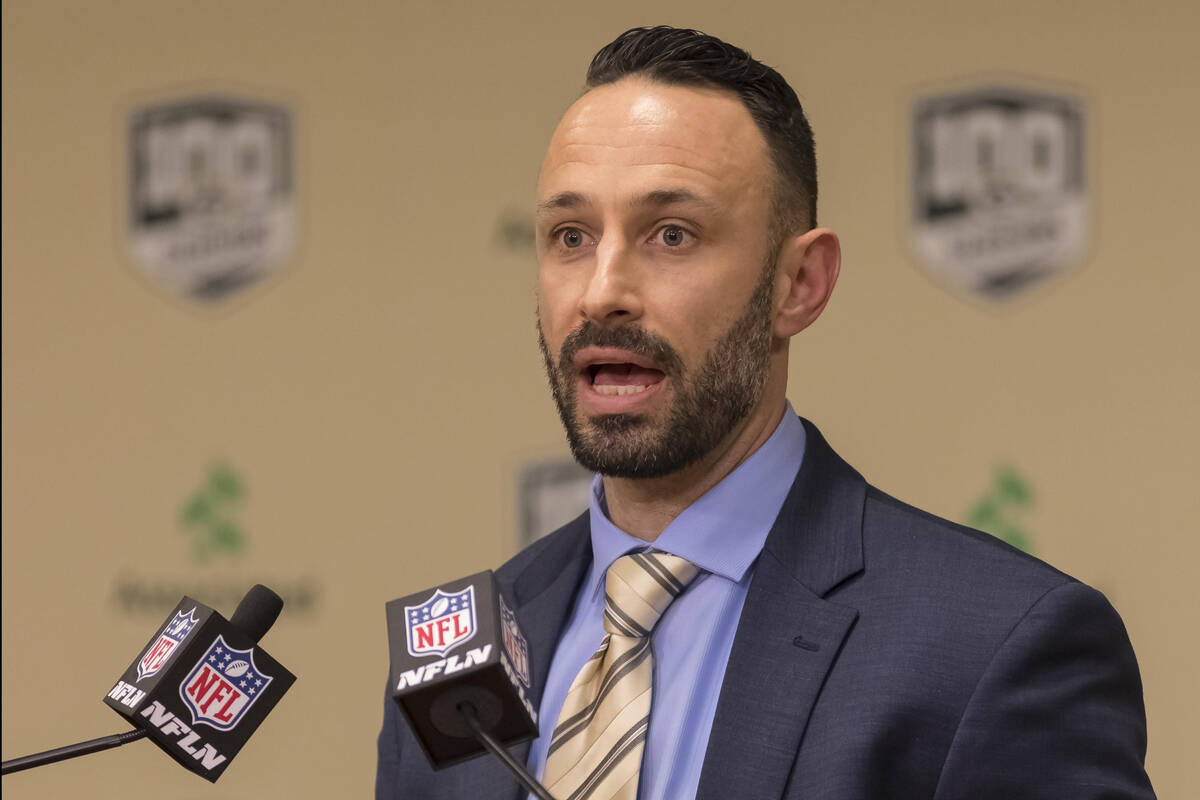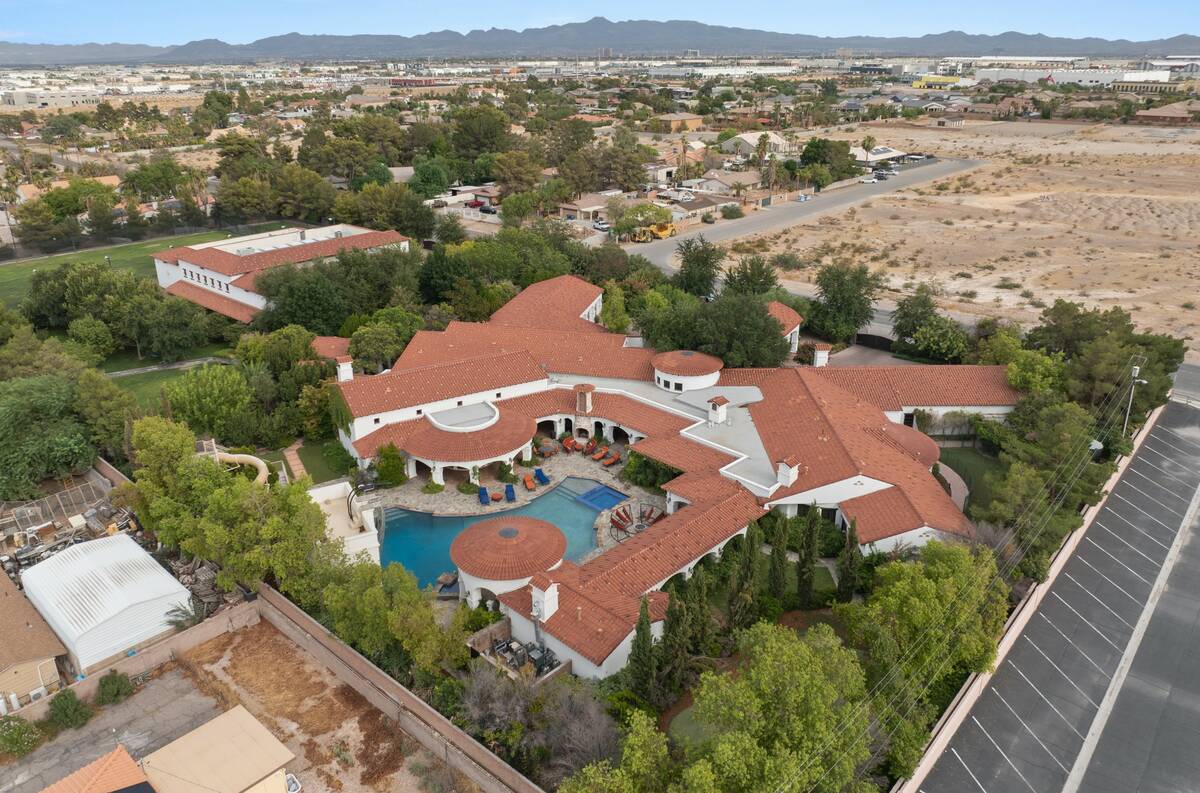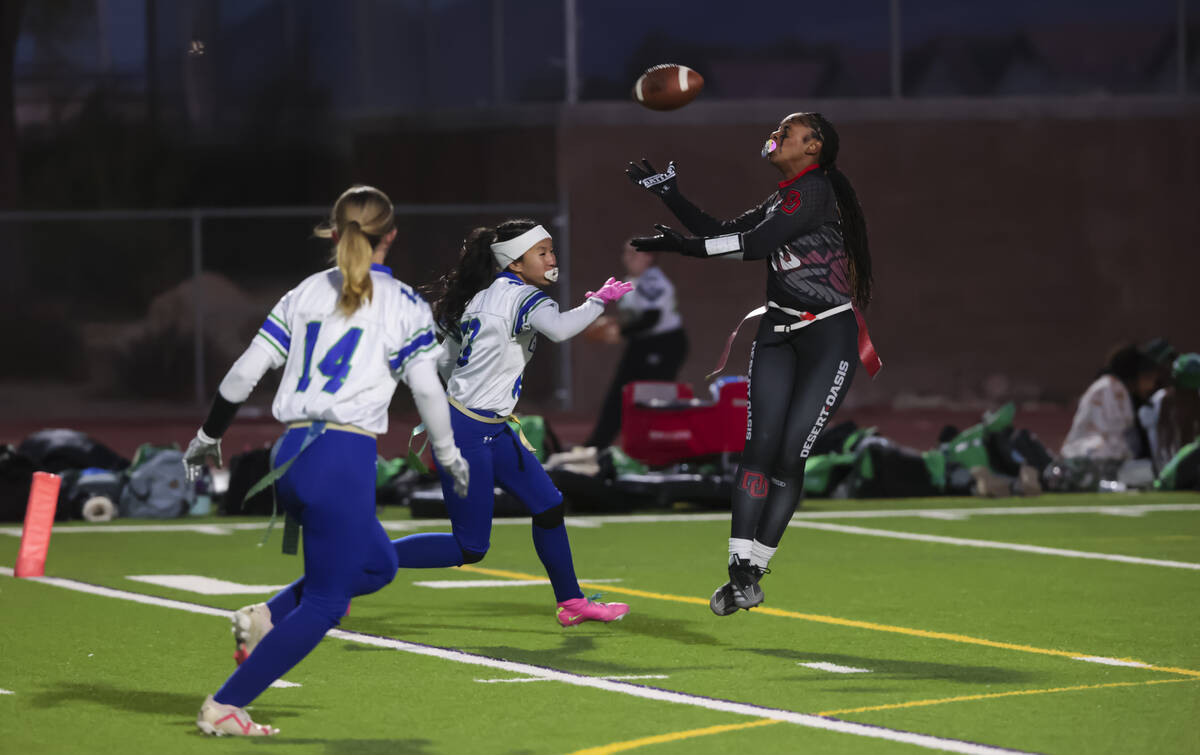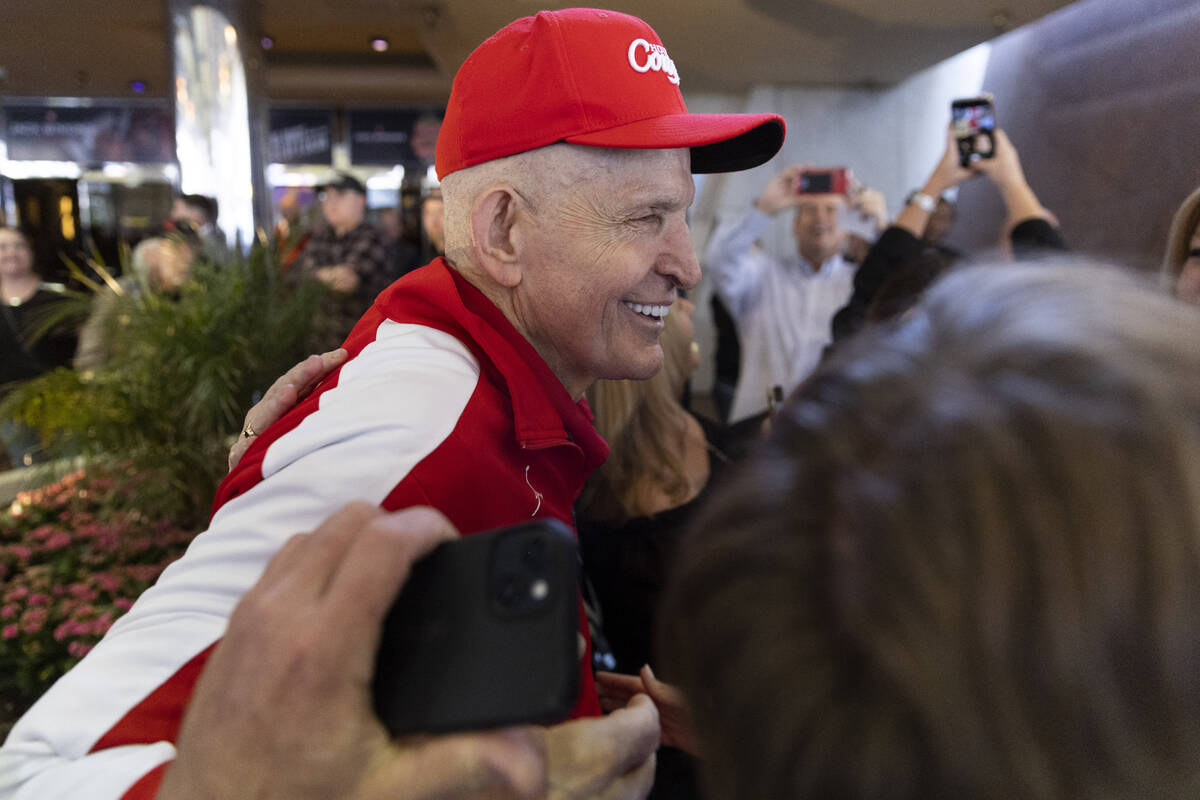A key player who helped the Oakland Athletics land up to $380 million in public financing for a $1.5 billion Las Vegas ballpark isn’t concerned about a push by state educators to stop the funding from being awarded.
The Nevada State Education Association in June filed paperwork to form a political action committee aimed at doing anything it could, including litigation and/or bringing the issue to a public vote, to void the hundreds of millions of dollars Senate Bill 1, which was signed into law last month, would provide the team.
The state’s largest teachers union, the Clark County Education Association, later said it did not support the state group’s effort.
Las Vegas Convention and Visitors Authority President and CEO Steve Hill, who took part in multiple presentations to the Legislature regarding the A’s stadium plans, said Tuesday that any push to curtail the stadium’s public funding would all but likely be too late.
“Litigation would be challenging the supermajority vote of the Legislature, and that’s misguided,” Hill said Tuesday during the LVCVA board of directors meeting. “That won’t go anywhere.”
If the group were successful in bringing the item to a vote, that couldn’t occur until November 2024, and the deal with the A’s would already be finalized, Hill said.
“It’s hard to get that on the ballot, but that’s a different subject,” Hill said. “But we will be done with our contract prior to that vote being taken. That contract would be in place based on the law (SB1) that is currently valid. … So if someone else looks to build a baseball park in the future, they may or may not be able to do that, but we have a law that allows us to go enter into a contract in order to do that, and that’s what we plan to do.”
The NSEA said those who lobbied for the stadium plan are brushing off the efforts and concerns of educators in the state.
“Anyone who knows educators would understand that telling them something can’t be done simply motivates them more,” the NSEA said in a statement. “Educators do the impossible every single day.”
The A’s still need Major League Baseball to approve their relocation by a 75 percent vote of team owners. There is no timetable for when the A’s will submit their relocation application to the league. A person with knowledge of the situation told the Las Vegas Review-Journal in June that the team has already begun that process, and MLB commissioner Rob Manfred confirmed that Tuesday.
“They have begun to submit information related to their relocation application,” Manfred told the Baseball Writers’ Association of America at a news conference in Seattle. “It’s not complete at this time.”
From there, the A’s and the Las Vegas Stadium Authority, which Hill chairs, would then be able to work on finalizing contracts that would lead to the building of the stadium and the moving of the team to Southern Nevada.
“Then we would have to go through a bunch of contracts before we could then turn to both the county and the state and ask them to issue bonds and develop transfer of tax credits,” Hill said. “That process is currently in the law now. That will not change for the next 14 months.”
Having a 30,000-seat ballpark will fill the gap of events that can’t fill Allegiant Stadium and are slightly too large for T-Mobile Arena, Hill said.
“We’ve had completely different organizations call and say … ‘We want to hold this or that there.’ So we’re excited about that as well,” Hill said.
Outside of drawing events, the building of the stadium and the operation of the facility will lead to a large number of jobs and will bring a return on investment, Hill said.
“There will be at least three times as much in tax revenue as there will be invested in this project,” Hill said. “That is the definition of a good deal. I think it will end up being more than that.”
Contact Mick Akers at [email protected] or 702-387-2920. Follow @mickakers on Twitter. The Associated Press contributed to this report.

